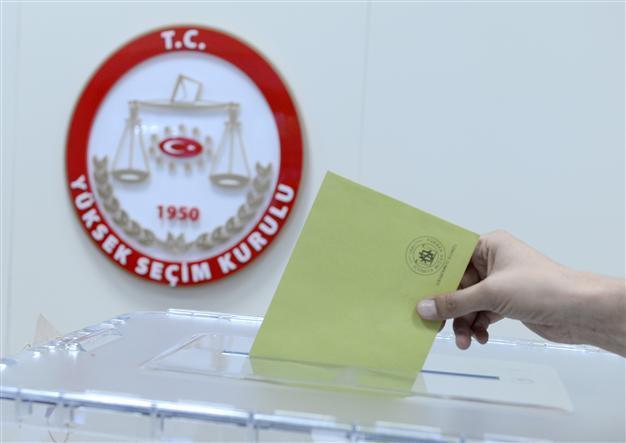Turkish expats not keen on voting abroad
Celal Özcan BERLIN

A total of 178,959 Turkish voters have taken an online appointment to vote abroad in the first round of the presidential elections. AA Photo
Turkish citizens living abroad have not been rushing to the ballot box for Turkey’s presidential elections, as only a small number of citizens have obtained an appointment to cast their vote.In the past, Turks living abroad could vote in polling stations at border gates. But on average, only 7 percent of the 2.6 million potential overseas voters voted in previous elections. With recent changes to the Election Law, however, the overseas electorate can vote at embassies, consulates and other designated areas in their country of residence between July 31 and Aug. 3.
However, the amendment failed to significantly raise the expatriate voter turnout as only around 180,000 Turkish national have registered to vote overseas.
A majority of the more than 2.7 million eligible voters living abroad may not be able to cast ballots in the presidential elections as they failed to make an appointment to vote through the website of the High Election Board (YSK). A total of 178,959 Turkish voters have taken an online appointment to vote abroad in the first round of the presidential elections. The exact number of voters who have obtained an appointment for both the first and a possible second round of the elections is 248,285.
The total number of Turkish electorate living abroad is 2,734,429, according to the YSK’s data, constituting 5 percent of the total number eligible to vote.
The number of Turkish voters living in Germany is 1,380,909. However, only 92,092 voters have registered to vote in the first round of the elections.
The low expected turnout has been attributed to the fact that many Turkish nationals were not informed that they had to register their addresses at the embassies or consulates in their cities of residence in order to obtain an appointment. Some voters also did not know how to use the Internet system, resulting in their failure to register.
Those who did not obtain an appointment via the Internet can vote at ballot boxes the system automatically assigns. However, it is expected that these voters will again hesitate to vote as such polling stations could be far from their residences.
Some 53 million people are able to vote in the election, including 2.8 million citizens abroad. Until now, Turkish presidents were elected by Parliament.
Meanwhile, Turkish nationals living abroad began casting their ballots on July 26 at border gates in Turkey.
Election officials set up 42 polling stations at land crossings, airports and ports that will remain open for arriving Turks until Aug. 10, the date that voters living in Turkey will go to the polls for the first round of the election.
Most of those travelling to border gates to vote are Turkish citizens living in nearby countries or passing through the country on their way to another destination.
Prime Minister Recep Tayyip Erdoğan, who is running for the post that until now has been largely ceremonial, held a rally in Germany in May in order to attract more voters to the ballot boxes.
Parliament’s two biggest opposition parties are backing Ekmeleddin İhsanoğlu, former head of the Organization of the Islamic Conference (OIC), as their candidate for president.
Selahattin Demirtaş, head of the People’s Democratic Party (HDP), a left-wing party that focuses on the Kurdish issue, is also running in the race.
















